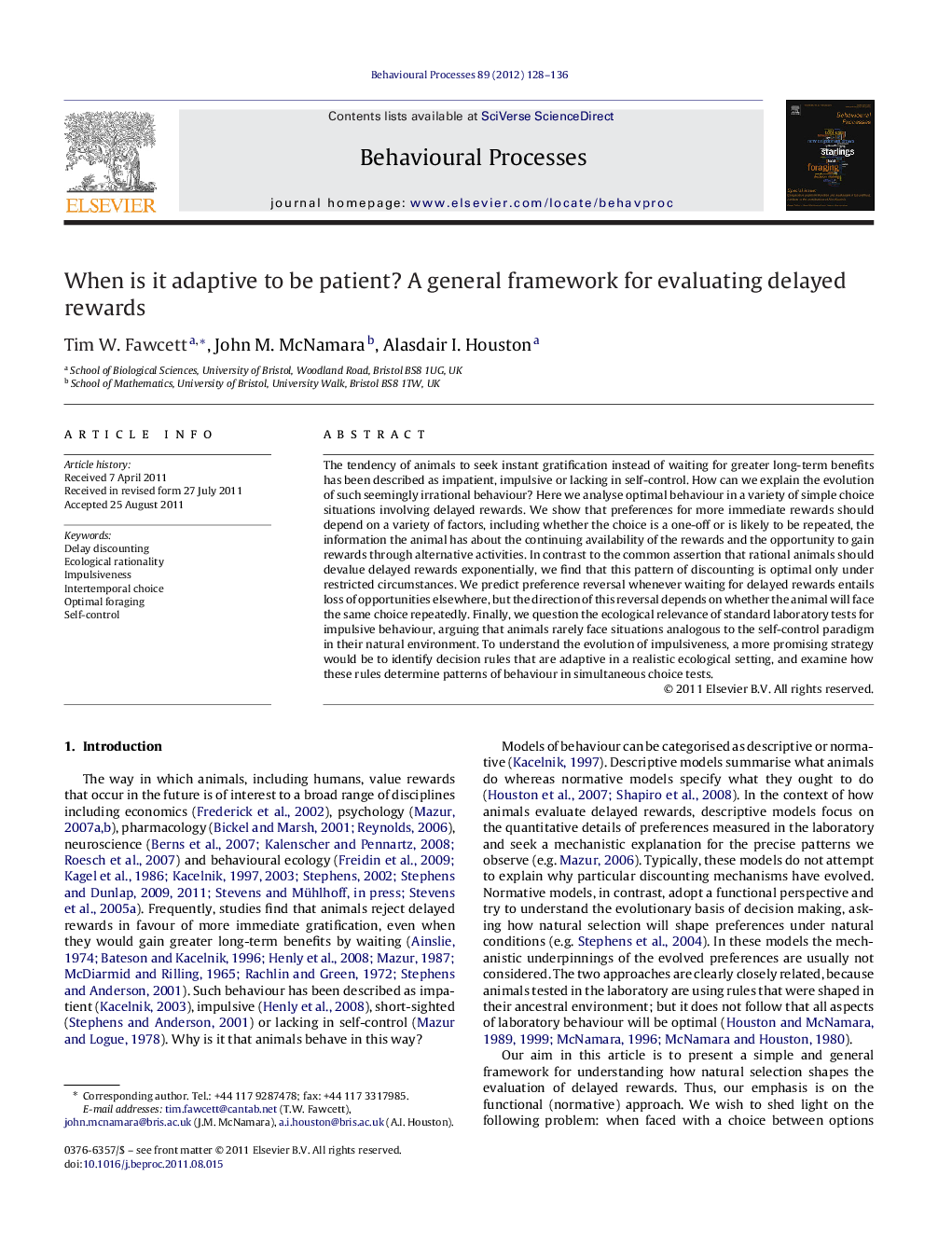| کد مقاله | کد نشریه | سال انتشار | مقاله انگلیسی | نسخه تمام متن |
|---|---|---|---|---|
| 2427009 | 1105937 | 2012 | 9 صفحه PDF | دانلود رایگان |

The tendency of animals to seek instant gratification instead of waiting for greater long-term benefits has been described as impatient, impulsive or lacking in self-control. How can we explain the evolution of such seemingly irrational behaviour? Here we analyse optimal behaviour in a variety of simple choice situations involving delayed rewards. We show that preferences for more immediate rewards should depend on a variety of factors, including whether the choice is a one-off or is likely to be repeated, the information the animal has about the continuing availability of the rewards and the opportunity to gain rewards through alternative activities. In contrast to the common assertion that rational animals should devalue delayed rewards exponentially, we find that this pattern of discounting is optimal only under restricted circumstances. We predict preference reversal whenever waiting for delayed rewards entails loss of opportunities elsewhere, but the direction of this reversal depends on whether the animal will face the same choice repeatedly. Finally, we question the ecological relevance of standard laboratory tests for impulsive behaviour, arguing that animals rarely face situations analogous to the self-control paradigm in their natural environment. To understand the evolution of impulsiveness, a more promising strategy would be to identify decision rules that are adaptive in a realistic ecological setting, and examine how these rules determine patterns of behaviour in simultaneous choice tests.
► Animals are frequently ‘impulsive’, choosing immediate over larger, delayed rewards.
► We model optimal behaviour when animals face foraging options with differing delays.
► Behaviour depends on external options, information and whether choice is repeated.
► Preference reversal over time is not equivalent to that across different choices.
► The ‘self-control’ paradigm does not fit most naturally occurring choice situations.
Journal: Behavioural Processes - Volume 89, Issue 2, February 2012, Pages 128–136